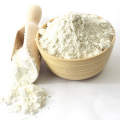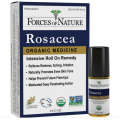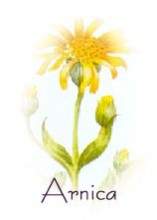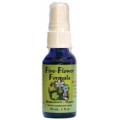 Loading... Please wait...
Loading... Please wait...- Home
- About Us
- Shipping, Returns & FAQ's
- Contact Us
-
For Your Information
- Canadian Customers Have a Choice if Shipping Via UPS
- Aura Cacia Homemade Aromatherapy Recipes
- Bella Nella Altered Art & Paper Crafts Blog
- Forms of Herbal Preparations
- Laundry Tips To Conserve Energy Blog from The Laundress
- The Story of Frontier Natural Products Co-Op
- Sovereign Silver Hydrosol and Aloe Protocol Stops Downward Spiral of Gut Dysbiosis
- Disclaimers
- Recommended Links
- RSS/Recent News
- The Story of Typhoon Housewares
- Reviews/Testimonials
- Raw Ingredients for Mfg
Arnica Flower Bulk
Product Description
Homeopathic practitioners prescribe Arnica for bruises, sprains, strains, dislocations, swellings and other types of accidents that are sudden and may induce shock, e.g. sports injuries.
Properites: stimulant for organ activity applied directly to wounds, bruises, swellings
Affected: sports injuries, bruises
Properites: stimulant for organ activity applied directly to wounds, bruises, swellings
Toxicity: Poisonous when taken internally
Warning: For external use. Can cause allergic dermatitis with extended use or in sensitive persons. This warning excludes homeopathic usage.
The Commission E approved the external use of arnica flower for injuries and for consequences of accidents, e.g., hematoma, dislocations, contusions, edema due to fracture, rheumatic muscle and joint problems. It is also approved for use in inflammation of the oral and throat region, furunculosis, inflammation caused by insect bites, and superficial phlebitis.
Arnica soothes sore muscles and reduces pain and inflammation. Europeans and Native Americans, who referred to arnica as mountain tobacco and leopard's bane, used it for sprains, bruises, and wounds (Grieve, 1979). Eclectic physicians, alternative medical practitioners of the late nineteenth and early twentieth centuries, recommended it for contusions and bruised muscles, mastalgia, and chronic sores or abscesses (Ellingwood, 1983). Rubbed on the head, arnica tincture was said to stimulate hair growth (Grieve, 1979). Some physicians recommended internal use for depression, dyspnea, typhoid, pneumonias, anemia, diarrhea, and cardiac weakness (Felter, 1922).
Contemporary studies demonstrate in vitro antimicrobial, anti-inflammatory, positive inotropic, respiratory-stimulating, and uterine activities (Schulz et al., 1998). Experimental trials suggest further potential uses. Arnica enhanced immune response in laboratory animals against Listeria monocytogenes and Salmonella typhimurium (Leung and Foster, 1996). One trial found that bile and liver enzyme levels improved when rats with carbon-tetrachloride-induced hepatic toxicity were administered phenols obtained from arnica (Marchishin, 1983). However, internal use of tinctures and fluidextracts is not recommended. Cardiac toxicity has been demonstrated, and arnica's effects on respiration and the uterus require further study. Oral administration of arnica is often accompanied by severe side effects. For this reason the monograph refers to the herb's external use only, in contrast to the comment section in the German Pharmacopoeia that refers to the internal use of a tea infusion of arnica for circulatory disorders of the heart and brain (DAB 8, 1978).
External use is also risky. Individuals sensitive to sesquiterpenes of the helenalin type may develop contact dermatitis from topical applications of arnica preparations. Edematous dermatosis and eczema have been reported following long-term use (Schulz et al., 1998). Arnica should not be applied to broken skin (McGuffin et al., 1997).
Appropriate for use when skin has not been broken, and you should discontinue its use at the first sign of any rash. Used to treat blood blisters caused by a blow to the affected area; and broken bones, sprains, strains and other sudden injuries with swelling, tenderness and pain, where post-trauma shock is a threat. Helpful for bruises, especially if Arnica is given before the skin begins to turn black and blue, and sore and swollen joints, as in arthritis, rheumatism and phlebitis. May help for head pain, groin strain, bunions, toothache and pain from dental work. You can make a healing solution using one to two teaspoons of dried Arnica per cup of boiling. Steep until cool and apply locally with cloth. Or make the solution using tincture of Arnica; a few drops per cup of water to start will do.
Botanical Name: Arnica montana/heterotheca inuloides
Origin: Mexico
Notes: Kosher. Non-irradiated.
Reference: herbalgram
Read More About It
Arnica: The Remedy That Should Be in Every Home by Phyllis Speight
You Recently Viewed...
Currency Converter
Choose a currency below to display product prices in the selected currency.




























